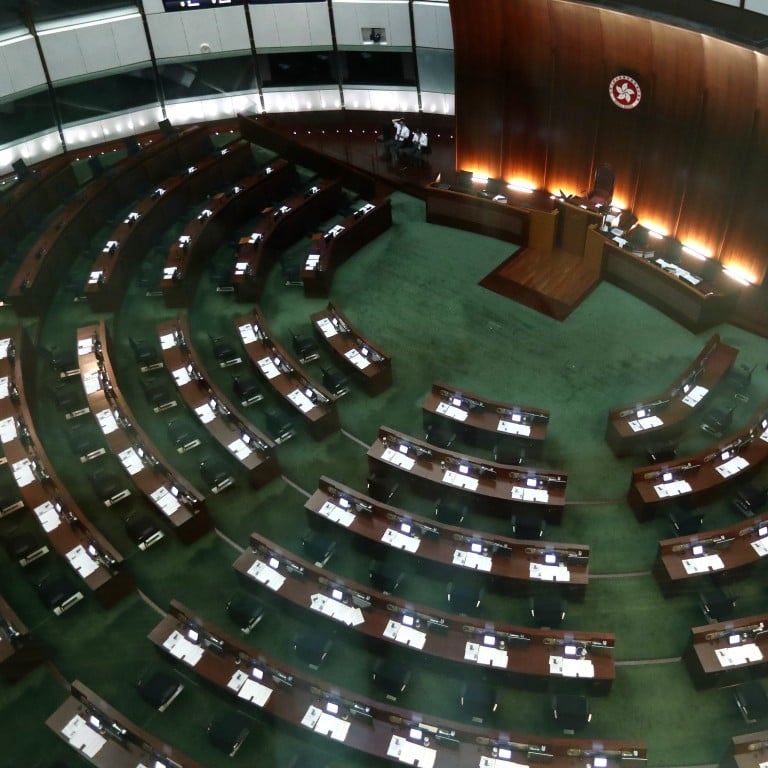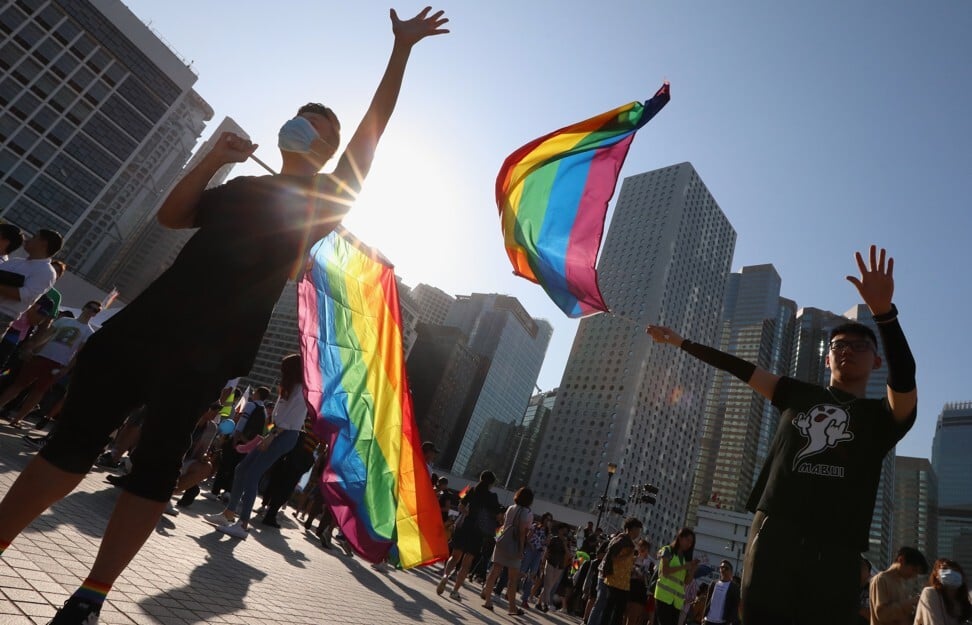
Exit of opposition lawmakers leaves Hong Kong NGOs, civil society lamenting lack of allies in Legco
- NGOs say they miss having opposition lawmakers to raise their issues, obtain data from officials
- Groups avoid approaching pro-establishment camp for help because of ‘fundamental differences’
Members of the non-profit Justice Centre watched in dismay two weeks ago as Hong Kong lawmakers sparred with officials over a bill affecting immigrants claiming refugee status.
Local human rights advocates and lawyers had warned that the Immigration (Amendment) Bill 2020 went too far by granting the authorities wider powers to lock up the claimants and allowing immigration officers to carry firearms at a dedicated detention facility.
The authorities said the bill was meant to end abuse of the city’s system of dealing with immigrants who file non-refoulement claims seeking refugee status, saying they could not be sent home for fear of being tortured or persecuted.
But at the Legco meeting on February 5, some lawmakers said the bill did not go far enough, with independent pro-establishment lawmaker Junius Ho Kwan-yiu demanding that all non-refoulement claimants be locked up pending the outcome of their applications.
Tourism sector lawmaker Yiu Si-wing suggested capping the legal aid fund for claimants, something the government had not proposed.

The Justice Centre, set up in 2007 to help refugees and others, issued a statement afterwards, saying it was disappointed that lawmakers had resorted to “misleading and discriminatory rhetoric” that implied asylum seekers were illegal immigrants and criminals.
“We call on Legco to view civil society as a partner to help achieve better policies and protection for all in Hong Kong,” its spokesman said.
The group, like other NGOs, realised that the ground had shifted significantly following the opposition’s mass resignation from the legislature.
The opposition camp was traditionally the go-to ally of many NGOs and human rights groups. Representatives of groups contacted by the Post said they had lost the ability to have their issues raised in Legco or obtain information needed for their research.
Pro-establishment bloc moves to pull delaying tactics from Legco playbook
Some said they had to put community projects on hold because they could not proceed without the help of lawmakers.
The Legco shake-up last November followed a resolution from Beijing’s top legislative body allowing local authorities to remove lawmakers deemed to have breached their duty of allegiance or threatened national security.
That led to the ousting of four opposition lawmakers. Fifteen other opposition lawmakers then resigned in protest, leaving only two in Legco.
Help on hold for abuse victims from lesbian community
Yeo Wai-wai, director of the organising committee of the Pride Parade, Hong Kong’s annual LGBT march, said she was worried that the community had lost its representation in Legco.
The movement used to rely mainly on opposition lawmakers to raise issues important to it, even when there was no specific bill before the legislature.

Yeo doubted that would happen now, as the pro-establishment camp was known to be conservative and included some of Hong Kong’s most vocal critics of the LGBT movement.
“The worst case scenario is that there will no longer be any push in Legco for equal rights for sexual minorities,” she said.
Although pro-establishment lawmaker Regina Ip Lau Suk-yee has been open-minded on LGBT issues, Yeo said: “Even if she is on our side, there’s only one of her. When the opposition camp was there, we had between 10 and 20.”
Yeo said her plan to increase protection for lesbian victims of domestic abuse was now in limbo. These victims, who stay in undisclosed shelters, fear being stalked by their abusers.
She said it would be challenging to approach the Labour Department on her own. Most pro-establishment lawmakers did not have experience dealing with domestic abuse issues, let alone cases in which the victims were lesbians, she added.
A new era: how will Hong Kong’s legislature function without an opposition?
‘Queries go unanswered’
Brian Wong Shiu-hung, a researcher from the Liber Research Community, an independent think-tank, said opposition lawmakers played an important role in improving transparency not least by obtaining information that was hard to get from government.
For years, he and his group passed questions for opposition lawmakers to ask, and they obtained data they would not have been granted by lodging freedom of information requests.
Wong said his group passed lawmakers about 300 questions each year, and that proved critical for their research on matters ranging from land issues to police spending.
The exit of opposition lawmakers affected their work. “Now there is a lot we cannot do this year,” he said.

For example, his group’s probe into the reasons the government almost demolished a century-old service reservoir in Bishop Hill, in Shek Kip Mei last year, has ground to a halt.
The group filed questions to the authorities on its own, but these had gone unanswered for weeks. They missed having lawmakers as partners to query the government directly.
Wong said he and his group did not approach pro-establishment lawmakers for help because they felt they had fundamental differences with the camp on some issues.
‘Opposition camp was warned’
Starry Lee Wai-king, chairperson of the Democratic Alliance for the Betterment and Progress of Hong Kong (DAB), the city’s largest pro-establishment party, said the opposition camp only had itself to blame for the current state of affairs.
The camp had kept up its anti-government, anti-Beijing rhetoric and frustrated officials with filibustering tactics to block the passage of bills. Lee said it had been warned of the consequences.
“We reminded the opposition camp that this was bound to happen,” she said. “They should have thought long and hard about not risking losing their voice.”

Lee shrugged off suggestions that the legislature had lost its plurality with the departure of opposition lawmakers, saying that there was a spectrum of diversity in the pro-establishment camp.
Former Democratic Party lawmaker Andrew Wan Siu-kin, who was among the opposition members who resigned, said Legco had been a monolithic set-up even with the opposition because the camp was outnumbered.
Wan said NGOs and civil society groups tended to gravitate towards the opposition camp even though many of them were apolitical. These groups wanted to get things done and opposition lawmakers seemed to have the knowledge and expertise to understand the issues involved, he said.
Yiu Si-wing, the lawmaker who called for a limit on legal aid for immigrants with refugee claims, acknowledged there could be differences between the pro-establishment camp and civic groups on issues such as human rights and equality.
But when it came to bread-and-butter issues concerning the whole of society, they all shared the same conviction, he said.
Yiu said he was only trying to be fair and pragmatic when he questioned officials about legal funding for non-refoulement claimants. And before doing so, he had also asked if the government proposals complied with human rights standards.
He said he had no problem hearing from representatives of NGOs and civil society groups.
Urging them to contact him, he said: “I am willing to find out what the problem is.”

